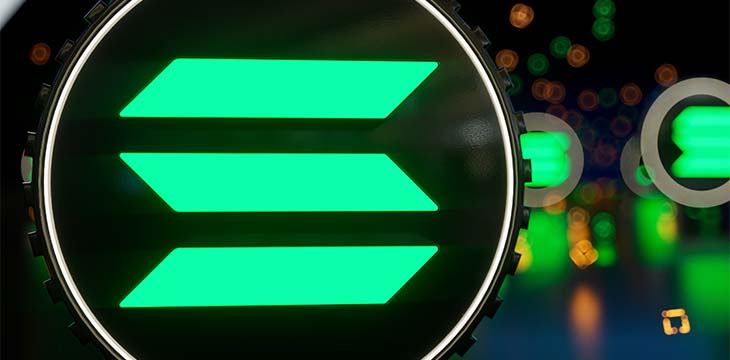|
Getting your Trinity Audio player ready...
|
Solana, the blockchain network with more reboots than Batman, ground to a halt again this week after a bug caused nodes to disagree on consensus. Though developers quickly applied band-aid measures and flipped Solana’s power switch off and on once again, the network’s user community is becoming more vocal in its dissatisfaction with the recurring problems.
The slickly-marketed Solana, with its synthwave branding and promises of speed, has often been touted as an “Ethereum killer” for running DApps and DeFi applications. Though its fans also like to remind everyone the network is still in beta phase, it’s not a good look to see those neon colors popping up in public alongside news reports of Solana’s latest failure.
Bitcoin itself is a less-slick, old-school blockchain network by comparison—and yet BSV has been able to process as many transactions as app platforms can throw at it. Daily volumes even hit 20 million at one stage, without so much as a burp.
The Solana Status Twitter account posted a typically blockchain-style explanation for the latest outage:
Earlier today a bug in the durable nonce transactions feature led to nondeterminism when nodes generated different results for the same block, which prevented the network from advancing.
— Solana Status (@SolanaStatus) June 1, 2022
That could also be called a chain-split in more familiar industry language, though rather than producing two separate records for any length of time, Solana’s validators halted the network for four hours, as devs patched the problem and restarted it.
In today’s case, the fix was to quickly disable the “durable nonce” feature (stop chuckling, Brits) that caused the problem. The durable nonce is a means of assembling a complex transaction offline before broadcasting to the network—one of Solana’s main selling points is its speed, which is too quick for some wishing to perform, for example, certain actions on tokens. The feature was previously little-used and obscure but has gained popularity at exchanges in more recent times.
This week’s problems follow soon after a similar shutdown-and-restart occurred at the start of May 2022, when the arrival of too many transactions at once gummed up Solana’s works. In February, Solana also managed to lose U.S.$320 million in ETH tokens due to an exploit on its “wormhole” DeFi token bridge.
The network also crashed to a standstill in September 2021, again thanks to excessive transaction load.
This latest incident saw Solana’s (SOL) unit price crash even harder than other digital assets over the past 24 hours, with the token losing 11.7% of its value. At press time SOL was U.S.$39.67, down from about $259 at its peak in November 2021, but roughly equivalent to its market price exactly a year ago.
The following reactions to the news summarized Solana’s situation in short, brutal fashion:
Price starts dropping, @solana stops working… 🤔#cardano #ada $ada #hosky #sol #solana $sol https://t.co/1ceh61aCEF pic.twitter.com/xUhDk06rin
— HOSKY (@hoskytoken) June 1, 2022
— FungKu_G₳ming ⭕✨🐍 (@FungKu_Gaming) June 1, 2022
Others were even less kind, urging Solana developers to “get their shit together” and warning of the dire consequences should the network fail at a more crucial time, such as during a big digital asset bull run. Such an occurrence would almost certainly be the death knell for any blockchain network, as frantic traders tried to buy and sell large bags on exchanges suddenly unable to confirm deposits.
All blockchains have had their glitches over the years, and even Bitcoin had the occasional stumble in its earlier days. It’s one of the reasons longevity is more desirable in this industry than exciting new features or fancy new consensus/processing mechanisms that promise much, until the next dreaded “something unexpected” comes along.
BSV has solid protocol rules that have been “set in stone” and won’t change, ever. It has also proven its ability to scale well into the millions of transactions per day without ever needing a “restart” of the entire network. If the blockchain/digital asset wants to be taken seriously by large enterprise and government-scale organizations, it’s reliability that will win over bright colors and buzz.
Follow CoinGeek’s Crypto Crime Cartel series, which delves into the stream of groups—a from BitMEX to Binance, Bitcoin.com, Blockstream, ShapeShift, Coinbase, Ripple,
Ethereum, FTX and Tether—who have co-opted the digital asset revolution and turned the industry into a minefield for naïve (and even experienced) players in the market.

 02-14-2026
02-14-2026 




